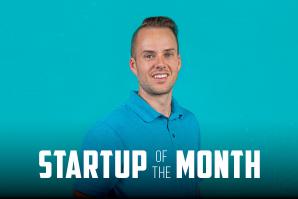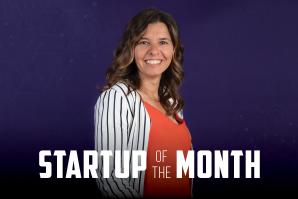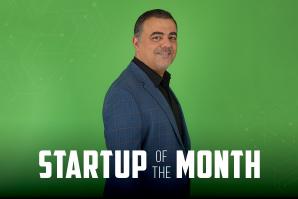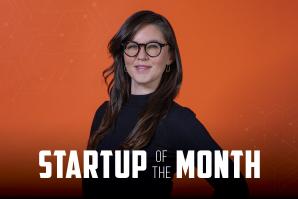Breast milk contains prebiotics, essential carbohydrates that nourish healthy bacteria for optimal infant gut health. BCD Bioscience, a startup that emerged from UC Davis, wants to expand the market of prebiotics to adults through a unique formula that creates carbohydrates with similar benefits from plant-based food sources.
“Instead of looking at milk for adult nutrition, we should be looking at other food and agriculture sources,” says Matt Amicucci, cofounder and principal scientist of BCD Bioscience, who was a chef for 10 years. “By providing certain beneficial carbohydrates, we can enhance microbes in the gut and lower the impetus for certain diseases.”
Most of the carbohydrates involved in prebiotics are nondigestible fiber, which can provide digestive health benefits and reduce the risk for heart diseases, stroke, obesity, certain cancers and other ailments. But national consumption surveys show that 95 percent of American adults and children don’t consume recommended amounts of fiber. Amicucci wants to change that by treating certain carbohydrates with their proprietary process to deliver more powerful prebiotics to the beneficial microbes in the gut.
Launched in 2019, BCD Bioscience has a team of 11, including chemists, engineers, food scientists and microbiologists. This fall, BCD Bioscience aims to raise $15 million to $20 million in a series A round. The startup also plans to submit the first compounds for regulatory approval by the end of 2021.
Gut health is a growing field with many companies trying to treat diseases by applying live microbes as pharmaceuticals, Amicucci says, but his startup sees massive potential in a “less invasive” approach. “We believe that we just need to put the right food there and the right microbes will flourish,” he says.
The fiber in breast milk feeds a specific strain of bacteria that creates a protective microbial population in the intestines. This bacteria “educates” the immune system, metabolism and neurological properties. Not having this good bacteria can result in allergies, eczema, obesity, anxiety and depression, says Bruce German, a professor and chemist of food science and technology at UC Davis and director for the university’s Foods for Health Institute (and a cofounder of BCD Bioscience).
“We came to the realization that once babies stop consuming breast milk, that fiber isn’t there anymore,” German says. “We knew that if we could solve for structures of complex carbohydrates in food, we could help the process of babies growing up.”
But there was one problem: No one knew how to sequence the long chains of carbohydrate molecules called polysaccharides. Amicucci discovered a method to break down complex carbohydrates into short chunks so foods such as corn, wheat, and fruits and vegetables can be measured accurately. This method helps scientists partially digest the carbohydrates so they have enhanced properties, German says. “Fortunately, the young scientist at the center, Matt, was interested in the bold step of starting a company,” he says.
Amicucci could have chosen to work for a big company, license the technology or keep his findings in the academic environment. But he saw too much value in the approach to hand it off and risk it going nowhere. German calls him an inspiration to young scientists in STEM fields because he transferred his passion for food into a scientific pursuit that could benefit the planet.
“(Amicucci) has that rare combination of being an extremely skilled, detailed, mechanistic scientist, plus someone who has a sense of improving the human condition,” German says.
The technology, developed with UC Davis, centers around creating new classes of carbohydrates that certain microbes can feed off of. The starting material to create their prebiotics comes from agricultural waste streams the startup repurposes: corn husks, leftover coffee grounds, citrus peels, spent brewers’ grains. On a mission to revolutionize fiber, BCD Bioscience has built a library of more than 2,000 natural products.
The discovery has potential to affect not just the human gut, but animals and even agriculture, where the soils on farmland can be regenerated to produce the same amount of food on half as much land, German says. But enhancing food is the first step.
“This will change the way we think about diet,” German says. “The first steps will be in guiding the bacterial communities in us.”
–
Stay up to date on business in the Capital Region: Subscribe to the Comstock’s newsletter today.
Recommended For You

Startup of the Month: Hank
Artificial intelligence platform helps building systems run efficiently
Summer heat in Sacramento can be stressful — especially for air conditioning units in office buildings.

Startup of the Month: Foodom
Business serves up on-demand home cooks
The Folsom-based startup Foodom launched in March 2020 to bring experienced cooks into the homes of busy families.

Startup of the Month: InVixa
Startup uses popular drug to target COVID-19 inflammation
As COVID-19 vaccines roll out worldwide, InVixa is working on a new delivery method for a cholesterol-lowering drug to treat respiratory inflammation caused by the coronavirus.

Startup of the Month: BoxPower
Delivering clean energy to end-of-the-line customers
In a world of portability and to-go orders, Grass Valley-based startup BoxPower delivers energy in a box.





Comments
Hello, pls give me more info about OMICS startups, thank you.